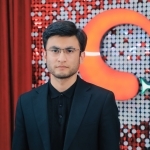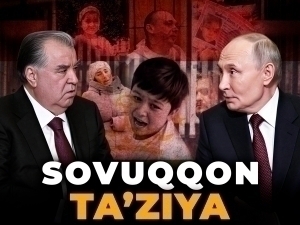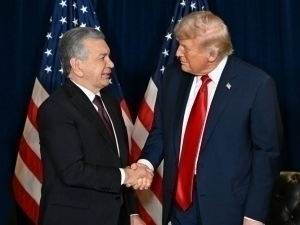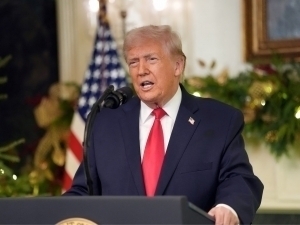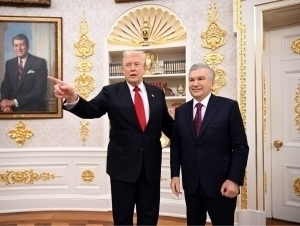Weekend: Secrets of “Sultan Suleiman” and “Alicho,” Trump forgetting Ukraine, and the endless nuclear debate
Review
−
25 May 7312 8 minutes
“Sultan Suleiman” and “Alicho” sentenced to prison
Prominent Turkish actors have been sentenced to prison for their alleged involvement in the Gezi Park protests—one of the largest protest movements in the country’s history. Halit Ergenç, widely known for his role as Sultan Suleiman in the historical TV series "The Magnificent Century", and Rıza Kocaoğlu, beloved for his portrayal of Alicho in the series "The Deep", were convicted of perjury.
According to an indictment prepared by the Istanbul Chief Prosecutor’s Office, Ergenç and Kocaoğlu were listed as suspects in the case. The actors had previously testified about their relationship with Mehmet Ali Alabora, a fellow actor and a prominent figure in the 2013 Gezi Park protests. In their testimonies, both claimed to know Alabora only through their work in the arts and denied any further connection. However, this was contradicted by mobile phone records and other evidence. Court documents revealed that during the protests, Halit Ergenç contacted Alabora 12 times, while Rıza Kocaoğlu contacted him once. Additionally, photos and videos surfaced showing both actors participating in the protests alongside Alabora. The prosecution argued that the actors deliberately gave false testimony to obstruct the investigation and initially sought prison sentences ranging from two to four years. Ultimately, the court sentenced Halit Ergenç to 1 year, 10 months, and 15 days in prison, and Rıza Kocaoğlu to 1 year and 8 months. The court stressed the importance of truthful testimony, stating that giving false statements under oath is a serious criminal offense. However, the execution of their sentences was postponed, leaving room for potential legal relief or sentence modification in the future.
For context, the Gezi Park protests began on May 28, 2013, in Istanbul’s Gezi Park and evolved into a nationwide movement. The demonstrations voiced strong opposition to media censorship, restrictions on freedom of speech, and the increasingly authoritarian policies of then-Prime Minister Recep Tayyip Erdoğan. Art and culture played a significant role in driving the movement, which is now remembered as one of the largest mass protests in modern Turkish history. According to official figures, an estimated 3.6 million people participated in around 5,000 demonstrations across Turkey. The unrest resulted in 22 deaths and over 8,000 injuries, many of them severe. More than 3,000 people were detained. Mehmet Ali Alabora, a central figure in the protests, faced severe political backlash due to his outspoken support. Following increased pressure, he left Turkey and relocated to Cardiff, the capital of Wales.
Iran and the US fail to reach an agreement
Nuclear negotiations between the United States and Iran have been ongoing for over two months, yet no breakthrough has been achieved. During this period, five rounds of indirect talks have taken place, the most recent of which was held on May 23 in Rome, Italy, with mediation provided by Oman. The latest meeting took place at the Omani Embassy in Rome and lasted approximately three and a half hours. Among the participants was Steve Witkoff, Special Envoy of U.S. President Donald Trump. He was seen leaving the venue at around 4:00 p.m. local time, prompting speculation that the talks had collapsed. However, Iranian Foreign Ministry spokesman Esmail Baghaei clarified on state television that Witkoff had left early due to a pre-scheduled flight and that the meeting had been conducted in a “calm and professional” atmosphere. Shortly thereafter, both the American and Iranian delegations exited the embassy.
This round of talks was the fifth in a series of indirect negotiations, which have been held alternately in Muscat, Oman, and Rome, Italy. The first session took place on April 12 in Muscat, followed by meetings on April 19 in Rome, April 26 in Muscat, and again on May 11 in Muscat. The Iranian delegation is led by Foreign Minister Abbas Araqchi, while the U.S. team is headed by Special Presidential Envoy Stephen Witkoff. Despite the continued diplomatic efforts, there has been little sign of progress. The main point of contention remains uranium enrichment—a central issue in the stalled nuclear agreement. Iranian officials, including President Masoud Pezeshkian, have firmly reiterated that, regardless of threats of force by U.S. President Donald Trump, Tehran will not abandon its right to develop nuclear energy for peaceful purposes. This stance has been uniformly supported by Iran’s senior leadership. Nonetheless, Iran has shown some willingness to compromise. Officials have indicated they would permit international inspectors to monitor the uranium enrichment process. However, Washington reportedly insists on the complete dismantling of Iran’s nuclear capabilities, a demand Tehran considers unacceptable. Amid this diplomatic stalemate, international concerns are mounting. Some foreign media outlets have speculated that Israel may launch a preemptive strike on Iran’s nuclear facilities—rumors that gained traction after Iran stood firm in its negotiations with the U.S. In response, Iranian Foreign Minister Abbas Araqchi issued a stark warning: if Israel were to attack, Iran would hold the United States complicit and respond forcefully to both nations.
Trump signals change in Ukraine policy
According to the Wall Street Journal, U.S. President Donald Trump told European leaders after a phone call with Russian President Vladimir Putin on May 19 that Putin does not want to end the war in Ukraine because he believes he will win. This marks the first time Trump has stated this so directly. European leaders had already interpreted Putin’s intent, but Trump’s statement contradicts his earlier claims in which he insisted that Putin sincerely wanted peace. The report also notes that Trump had originally planned to impose sanctions on Russia if Putin refused a ceasefire. He informed European leaders of this plan before the call. However, on May 19, Trump unexpectedly changed course. Instead of sanctions, he proposed initiating low-level negotiations between Russia and Ukraine to be hosted at the Vatican. Additionally, he said he would no longer push for sanctions against Russia, even if it violated the terms of the talks. His reasoning, according to the publication, is that his focus is now on growing the U.S. economy and expanding business opportunities at home—goals he believes would be hindered by escalating pressure on Russia. Trump’s proposal to hold negotiations in the Vatican was promptly rejected by Russian Foreign Minister Sergei Lavrov, who stated that President Putin would not attend talks held there.
Amid these developments, the gap between the Kremlin and the White House is not narrowing—on the contrary, the dynamic appears to be returning to the way it was during Trump’s first presidential term. Trump is once again communicating with Putin in a familiar tone, and even former critics of the Kremlin within the U.S. political establishment have started softening their rhetoric. One of the most notable examples is Senator Marco Rubio. Rubio, once a fierce critic of Putin’s actions, has now changed his tone considerably. On May 21, during a hearing of the House Foreign Affairs Committee, Congressman Bill Keating reminded Rubio of a statement he made during the early days of Russia’s 2022 invasion of Ukraine, when he had called Putin a war criminal. Keating asked whether Rubio still held that view. Rubio avoided a direct answer, saying, “Our goal right now is just to end the war.” When pressed again by Keating, Rubio responded vaguely, saying, “War crimes were committed in Ukraine, there is accountability for this, and there will be a time and place for that,” without directly naming Putin.
Rubio’s reluctance to label Putin a war criminal today—despite doing so in 2022—highlights the broader shift in Trump-era U.S. foreign policy. Trump’s relationship with Putin appears to be growing warmer, so much so that Russian state libraries are now buying his books in large quantities. According to the Russian newspaper Moskovsky Komsomolets, state libraries in various regions of Russia, including the Magnitogorsk City Library Association in the Chelyabinsk region, have recently purchased Trump’s book “Think Like a Champion.” Libraries in Baikonur have ordered “The Art of the Deal” and “A Tycoon’s Views on Life and Business.” In addition, several Russian cities have ordered books about Trump written by Russian authors. For instance, libraries in Sayansk (Irkutsk region) ordered “Donald Trump. A Strange Stranger” by Alexander Nemirov, while libraries in Chelyabinsk ordered “Portrait of a Contrarian Leader” by Igor Prokopenko. Similar requests were made from Novy Urengoy, the Namsky Ulus of Yakutia, and the city of Bezhetsk in the Tver region.
Live
All24 December
O'zbekistonliklarning buyragini olib sotgan ukrainalik ayol Markaziy Osiyoga topshirildi
24 December
